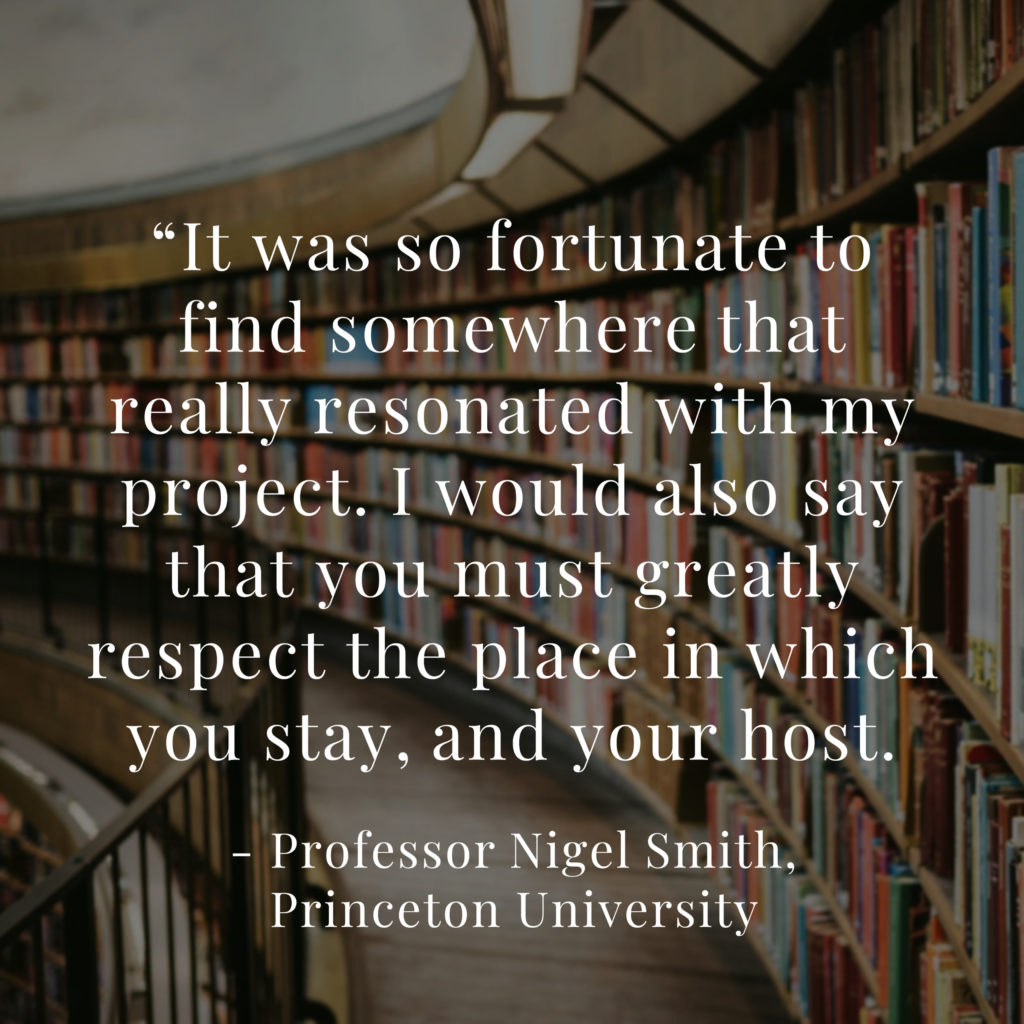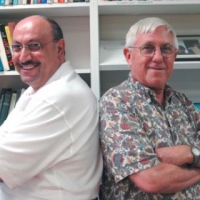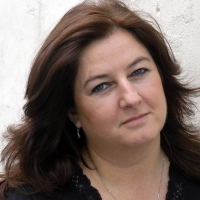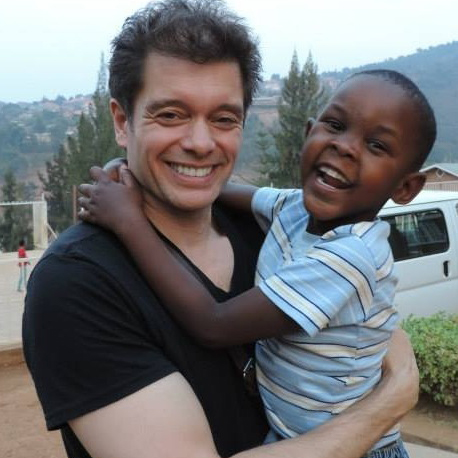What Can a Sabbatical Do for Your Career?

Content from our partners at SabbaticalHomes.com
Why take a Sabbatical?
The word “sabbatical” comes from the Old Testament concept of the Sabbath or Shabat, and while religions today interpret a holy day or day of rest in different ways, it is clear that the human need for regular rest and appreciation is nearly universal.
Today, many academics are accustomed to the idea of sabbaticals, a key perk of attaining tenure. Sabbaticals were traditionally based on taking one year of sabbatical leave for every seven years of tenured work, but it has become more common in academia to take a 6-month sabbatical after every three and half years of work.
While not everyone in higher education is a tenured professor, anyone working in academia can greatly benefit from taking a sabbatical. The benefits of being away from, and then coming back into, your regular life—with a reinvigorated and usually more global perspective—are undeniable.
What can a sabbatical do for you professionally and personally?
While some sabbaticals may have a research or writing focus, some people plan a sabbatical or an extended break from their regular schedule to consider a career transition. It is helpful to have some time to process career goals, whether that means looking for a more challenging job in your current field, changing fields, or going back to school for an advanced degree.
Lyndall Farley, founder of Beyond a Break, notes that “the length of a sabbatical is different country to country. My general rule is that a sabbatical is double the length of your annual leave allowance,” meaning that a sabbatical will feel like real break if it is at least double your regular time off. In her experience of taking periodic sabbaticals during her professional life, she has found this is the minimum duration most people need to really decompress and immerse themselves in the focus of their sabbatical.
This time away from your accustomed environment allows you to experience different perspectives, share ideas with new people, and reinvigorate your mind. While many enjoy the stimulating nature of traveling to other countries, others crave time alone in a peaceful, natural setting. The beauty of a sabbatical is that the focus can be completely personalized to your goals, budget, and time frame. Read on for inspiring ideas of what people experience while on leave.
Related: Lyndall Farley, Beyond a Break
1. Complete a professional project

Many of SabbaticalHomes.com’s members find accommodations in other cities or countries to dedicate themselves to a project related to that destination. Princeton Professor Nigel Smith stayed in Jane Boyd’s Amsterdam flat for three summers while writing his forthcoming book, Polyglot Poetics: Transnational Early Modern Literature, which “involves the comparison of English with literatures in other European languages (especially Dutch, German, French and Spanish) in the context of political and religious transformation between 1500 and 1800.”
As a visiting professor at Huygens Instituut, part of the Royal Dutch Academy, Professor Smith had access to the libraries and archives to conduct research for his book. He also worked closely with colleagues in the Netherlands. Living in Amsterdam for longer stretches of time was crucial for his research.
Staying in Jane Boyd’s flat was the perfect writing retreat. The home created a separation from Professor Smith’s regular surroundings to allow him to focus on the book. Professor Smith and his wife have found their summers in Amsterdam to be professionally productive as well as personally satisfying. They love the art, the architecture, the music and the food of where they stay in Amsterdam, and all of that has added up to a series of meaningful sabbaticals.
Related: Amsterdam Flat as Writing Inspiration
2. Recalibrate work/life balance

As technology has advanced and the pace of life has increased, the lines between our professional and personal lives have blurred, and many people are using sabbaticals as a way to re-set. This concept of a timed resting period is especially critical for people who have demanding jobs, as well as family or personal responsibilities.
After seven years of heading up a three-campus community college in Maryland along with juggling family life, President DeRionne P. Pollard was “getting a little burned out.” The Chronicle of Higher Education profiled how her 6-month sabbatical helped her reboot and refocus on her home life. Having the time to do that allowed Pollard to come back to her job with a renewed sense of excitement and commitment, something almost anyone can appreciate!
Many SabbaticalHomes.com members find that even if their sabbatical has a professional focus and isn’t designed purely for R&R, just living in a different environment is a change of pace that opens their minds in new ways.
Related: Taking a Sabbatical? What You Need to Know.
3. Collaborate across cultures

One of the best aspects of academic life is connecting with other people who have dedicated their professional lives to the same subject area. Many SabbaticalHomes.com members explore the full benefit of teaching, conducting research, or collaborating on a book or film with a colleague in another city or country. Even with all of the email and videoconferencing we have at our fingertips today, face-to-face communication remains extremely valuable.
A unique and inspiring example of this are two SabbaticalHomes.com members who have collaborated on teaching a class each summer since 1993. Edward “Edy” Kaufman (photo at right), a recognized scholar of Israel, and Manuel Hassassian (photo at left), a recognized academic in Palestine, team-teach “Conflict Resolution: The Israeli-Palestinian Experiment” each summer at the University of Maryland.
The professors’ ongoing work speaks to the role of academia in fostering dialogue and conflict resolution. Every year, the class has adapted to the changing political climate in the region. The class offers students the narratives of both sides of the conflict, what they have learned about conflict resolution, and their reflections on whether a peaceful conflict is possible.
Related: Seeking Peace Through Partnership
4. Immerse Yourself in the History of Another Country
Author and historian Julie Peakman (photo below) first visited the Greek island of Leros at age 17 and fell in love with the place. She had always dreamed of owning a home of her own on Leros, and was able to do that as an adult. Her time in Greece has inspired her to research extensively and write about those who defended the island during World War II in her book, Hitler’s Island War:

“I started with trying to trace the soldiers who had fought in the Battle of Leros all those years ago. It was a hard job and took some time. I wrote to military museums of the regiments involved, I wrote on military forums, I tracked people who were at the Leros vets reunion…few of them were still alive. They lived up and down the country so I travelled about with my tape recorder interviewing as many of them as I could.
“It was an honor to meet them. Many of them had never shared their story with anyone, not even their closest family. They all seemed to know that this was their last chance to tell their story. I just hope I have done them justice.”
Through her work, Peakman has brought to life little-known stories of soldiers fighting for democracy in a place she loves. She became part of the SabbaticalHomes.com family because she is an author and knows so many writers who might not yet be financially successful, but who need to have access to libraries and archives in other countries.
Taking a sabbatical to do this research can make all the difference to someone who has invested their time and energy into a project, and being in the country while delving into the research gives an irreplaceable sense of time and place to a book, especially historical works.
Related: Julie Peakman, Historian & Author
5. Dedicate yourself to a passion project

SabbaticalHomes.com member Michael Stromme has used the site to find trustworthy tenants for his home in New York, while he dedicates his time in Uganda, working with “a variety of charitable organizations that provide vulnerable children with food, education, and emotional support.”
Stromme, a
social entrepreneur, has founded an NGO called LIFT (Lives Impacted for a
Future Together) in Kampala, Uganda. Since the country is rich in agriculture
and has many oily plants, he is working on developing a line of essential oils
to be sold to local high-end boutique hotels and spas. He uses the profits from
the essential oils (adding handmade soaps in the future) to fund his NGO and
the needs of the children he works with.
In effect, Michael’s sabbatical has become his new job. As he worked more and
more with the kids, he realized he had the skill set and passion to create
something that would “leave this world a little better than how you found it.”
Related: Michael Stromme, Social Entrepreneur in Uganda
Exploring Future Sabbaticals
If these ideas inspire you, it might be the year for you to plan an extended trip or sabbatical! Research has shown that sabbaticals positively impact professional productivity and creativity and improves overall mental and physical health, so if this is the year for you, start exploring the possible places you can find temporary accommodations or tenants for your home on SabbaticalHomes.com.
